
Nothing much seemed to be happening, with only Cape Turtle and Emerald-spotted Wood doves, Red-capped Larks and a few Burchell’s Sandgrouse apparently the only visitors at the waterhole.
Suddenly, in the shade of a step in the limestone formation, a movement next at the water caught my eye. The next moment an African wild cat leapt up to catch a dove coming in to land, but the bird managed to avoid the little predator. Some 10 minutes later the cat noticed a Cape Turtle Dove that had landed on the limestone step; again, its lightning-fast attack was unsuccessful and the dove escaped unscathed.
The wild cat settled in the shade again, effectively camouflaged, and closely tracked the arrival of every bird. It launched a few more attempts, but all were either aborted or unsuccessful. At 07h51 the cat once again leapt straight up, twisted around a metre above the ground and fell back to earth, head first. With its front paws it had snaffled an Emerald-spotted Wood Dove in mid-air, but then fallen before it could secure its prey between its teeth and had to release the dove.
This story is from the September/October 2022 edition of African Birdlife.
Start your 7-day Magzter GOLD free trial to access thousands of curated premium stories, and 9,000+ magazines and newspapers.
Already a subscriber ? Sign In
This story is from the September/October 2022 edition of African Birdlife.
Start your 7-day Magzter GOLD free trial to access thousands of curated premium stories, and 9,000+ magazines and newspapers.
Already a subscriber? Sign In

EXPLORING NEW HORIZONS
Keith Barnes, co-author of the new Field Guide to Birds of Greater Southern Africa, chats about the long-neglected birding regions just north of the Kunene and Zambezi, getting back to watching birds and the vulture that changed his life.

footloose IN FYNBOS
The Walker Bay Diversity Trail is a leisurely hike with a multitude of flowers, feathers and flavours along the way.
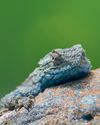
Living forwards
How photographing birds helps me face adversity
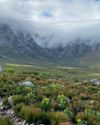
CAPE crusade
The Cape Bird Club/City of Cape Town Birding Big Year Challenge
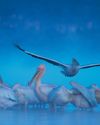
water & WINGS
WATER IS LIFE. As wildlife photographer Greg du Toit knows better than most.
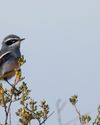
winter wanderer
as summer becomes a memory in the south, the skies are a little quieter as the migrants have returned to the warming north. But one bird endemic to the southern African region takes its own little winter journey.

when perfect isn't enough
Egg signatures and forgeries in the cuckoo-drongo arms race

Southern SIGHTINGS
The late summer period naturally started quietening down after the midsummer excitement, but there were still some classy rarities on offer for birders all over the subregion. As always, none of the records included here have been adjudicated by any of the subregion's Rarities Committees.

flood impact on wetland birds
One of the features of a warming planet is increasingly erratic rainfall; years of drought followed by devastating floods. Fortunately, many waterbirds are pre-adapted to cope with such extremes, especially in southern Africa where they have evolved to exploit episodic rainfall events in semi-arid and arid regions. But how do waterbirds respond to floods in areas where rainfall - and access to water - is more predictable? Peter Ryan explores the consequences of recent floods on the birds of the Western Cape's Olifants River valley.
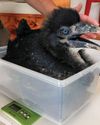
a star is born
It’s every producer’s dream to plan a wildlife television series and pick the right characters before filming.